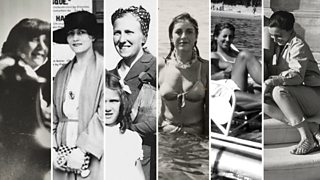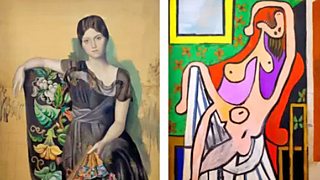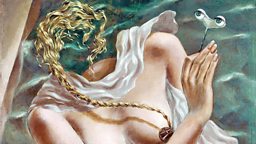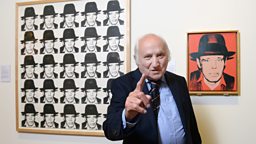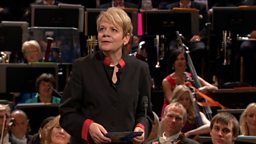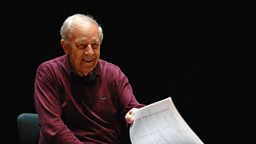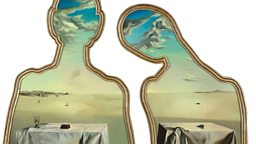Life is a cabaret: Barry Humphries on swapping Dame Edna for Weimar Germany
21 July 2016
He may be best known for his comic creation Dame Edna Everage, but Australian performer Barry Humphries has nursed a passion for the 1930s German cabaret scene ever since he was a teenager. As the 82-year-old prepares to perform his Weimar Cabaret show in London, before taking it to the Edinburgh International Festival, WILLIAM COOK meets him at home to talk Kurt Weill, underground Berlin and 'degenerate music'.
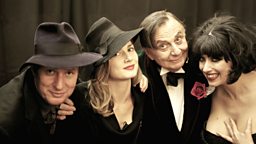
Visiting Barry Humphries in his London home is a very strange experience. Of course every performer is different offstage, but Humphries is a completely different person.
Onstage, he’s Dame Edna Everage, the DayGlo Antipodean diva who’s never afraid to speak her mind. Offstage he’s urbane and erudite, a lover of European culture with a house full of books and paintings.
It’s an evening of so-called degenerate music, which is the name the Nazis gave itBarry Humphries
This is the real Humphries, and this summer you can see him performing his Weimar Cabaret show, in London and then in Edinburgh, accompanied by the Australian Chamber Orchestra. Humphries has already toured Australia with this show, where it went down very well.
“It’s very accessible and jazzy,” he says, over coffee in his book-lined dining room. “It’s an evening of music – so-called degenerate music, which is the name the Nazis gave it.” He’s joined onstage by Meow Meow, aka Australian cabaret artiste Melissa Madden Gray.
Humphries has always had a special passion for Central European culture, above all the cabaret scene in Germany between the end of the First World War and the advent of the Third Reich.
Germany’s Weimar Republic was an era of political chaos, but what’s bad news for politicians is good news for satirists, and between 1918 and 1933 Germany’s cabaret clubs thrived. Berlin in particular became a hotbed of decadent, subversive entertainment, until Hitler came to power and promptly snuffed it out.
Humphries’ first taste of Weimar cabaret came as a small child in his native Melbourne. It was the late 1930s, and Hitler had yet to go to war, but a lot of the artistes he’d persecuted had already fled, a good many of them Down Under.
When they performed on Australian radio, Humphries was entranced. When he became a teenager, his interest in this ‘degenerate’ genre took off.
He says: “I used to trawl the second hand bookshops of Melbourne, and I found a great stack of music. It was music of the pre-Hitler period, by composers I’d never heard of. I investigated this repertoire and found out that it was generally banned. It was by Jewish composers who’d either been murdered or forced into exile. So I began with a very keen interest in this submerged art of that period, both in painting and in music and in literature.”

He became fascinated by the European avant-garde, particularly Dada and Surrealism. He started performing Surrealist stunts on the streets of Melbourne, playing eccentric and outrageous characters “pour épater la bourgeoisie”.
When Humphries became an entertainer, in Australia in the 1950s, he got to know some of the refugee composers who’d found their way Down Under, and became a keen collector of their recordings.
He imported an old German record of Kurt Weill’s The Threepenny Opera, long before it was popularised by Louis Armstrong’s cover version of Mack The Knife.
[Weimar Cabaret] was a reaction to the terribly safe, hygienic life of suburban Australia in the 1950sBarry Humphries
Humphries’ show features several songs from Weill’s Threepenny Opera, plus less familiar numbers by Wilhelm Grosz, an Austrian composer who fled to London, and went on to write Tin Pan Alley hits like Red Sails In The Sunset.
So what was it about Weimar Cabaret which Humphries found so alluring? As a middle class Australian, growing up in Melbourne, it’s hard to imagine an art form less applicable to his daily life.
However for Humphries, this incongruity was Weimar Cabaret’s main attraction. A frustrated artist and intellectual, he felt stifled by the bourgeois values of his Australian upbringing. Kurt Weill was the soundtrack of the life he yearned for.
“It was a reaction to the terribly safe, hygienic life of suburban Australia in the 1950s, which was hell,” he says. “It was so nice! I call it the politics of niceness. Everything had to be nice, and out of this sprang characters of mine like Edna, who personified niceness.” Weimar Cabaret was the opposite of nice.
Humphries grew up with a “hankering for Europe,” and in 1959 he came to London: “I needed a more bracing, competitive, climate.” Here he found the creative habitat he craved.
During the 1960s, the Big Smoke became one of the most happening cities in the world, and Humphries was centre stage. He appeared in Lionel Bart’s Oliver! and Spike Milligan’s The Bed Sitting Room, but it was as a comedian rather than an actor that he really made his mark.
Peter Cook was one of the first people to spot Humphries’ comic potential, booking him at The Establishment, his satirical night club in London’s Soho. It was at The Establishment that Humphries unveiled Mrs Edna Everage – a shy housewife back then, rather than the pantomime dame she became.
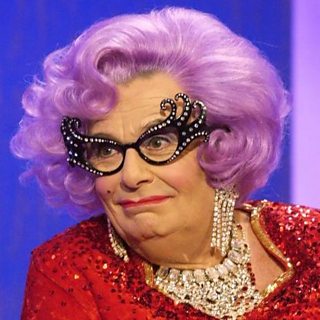
This prim and proper Edna was far too subtle for that trendy London audience, and Humphries died a dreadful death. However Cook didn’t mind at all. “They’ll get it one day,” he told Humphries.
He cast Humphries in Bedazzled, his comic remake of Faust (Humphries performed a scene-stealing cameo) and commissioned him to write The Adventures of Barry McKenzie for Private Eye.
This Rabelaisian comic strip (about a boorish Australian in Swinging London) spawned two movies, but it was Edna who made him a star. It took a while, but it turned out that Cook’s prediction was quite right.
Originally, Humphries invented Edna to embody all the things he disliked about suburban Australia, so he was surprised to find that audiences adored her: “I found myself saddled with a character that people warmed to. The more unpleasant Edna was to members of the audience, the more they seemed to laugh, and embrace her!”
Gradually, she acquired a life of her own, so much so that she now feels like an entirely separate person. Edna still hogs the limelight, but she’s just one of an ensemble cast of Humphries characters, alongside louche Australian ambassador Sir Les Patterson and Australia’s most boring man, Sandy Stone.
Now in his early eighties, Humphries’ live shows are becoming rarer, which is why this show is such a special treat. It’s a unique opportunity to see him up close and personal, without make-up or pantyhose, paying homage to an art form he’s loved throughout his life.
Barry Humphries’ Weimar Cabaret is at the Cadogan Hall, London on 29 & 30 July and 2 & 3 August, and the Usher Hall, Edinburgh on 8 & 9 August.
Barry Humphries at the EIF
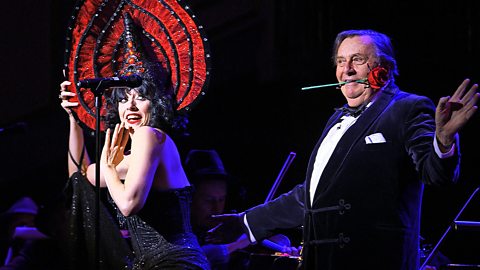
Barry Humphries' Weimar Cabaret
Barry Humphries brings his acclaimed Weimar Cabaret show to the Edinburgh Festival
Warning: Third party content may contain adverts.
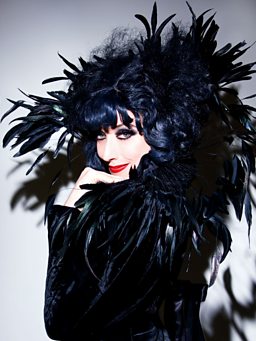

Related Links
More from Edinburgh
-
![]()
BBC at the Edinburgh Festivals
The BBC returns to Edinburgh for coverage of the festival season in 2016.
More from BBC Arts
-
![]()
Picasso’s ex-factor
Who are the six women who shaped his life and work?
-
![]()
Quiz: Picasso or pixel?
Can you separate the AI fakes from genuine paintings by Pablo Picasso?
-
![]()
Frida: Fiery, fierce and passionate
The extraordinary life of Mexican artist Frida Kahlo, in her own words
-
![]()
Proms 2023: The best bits
From Yuja Wang to Northern Soul, handpicked stand-out moments from this year's Proms

